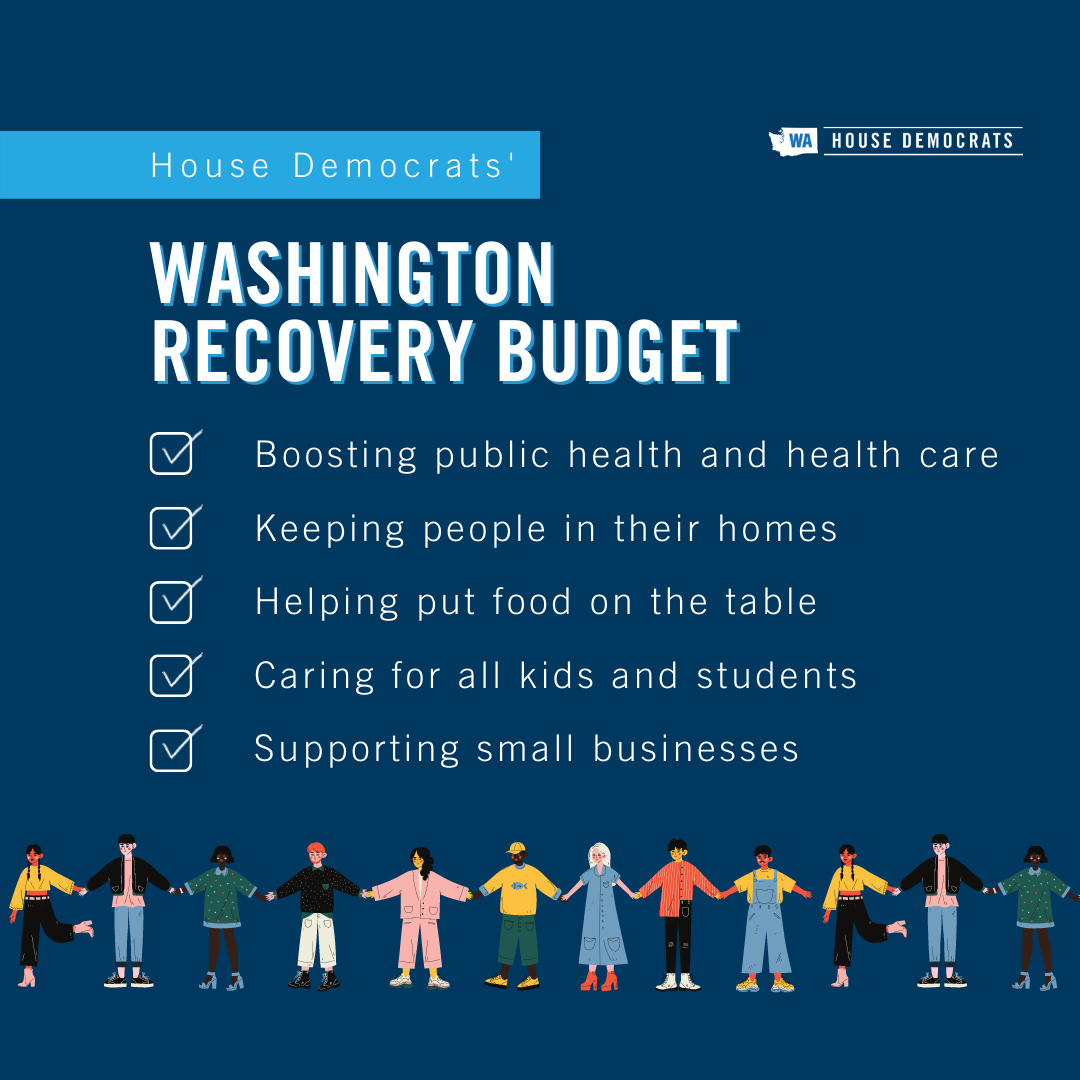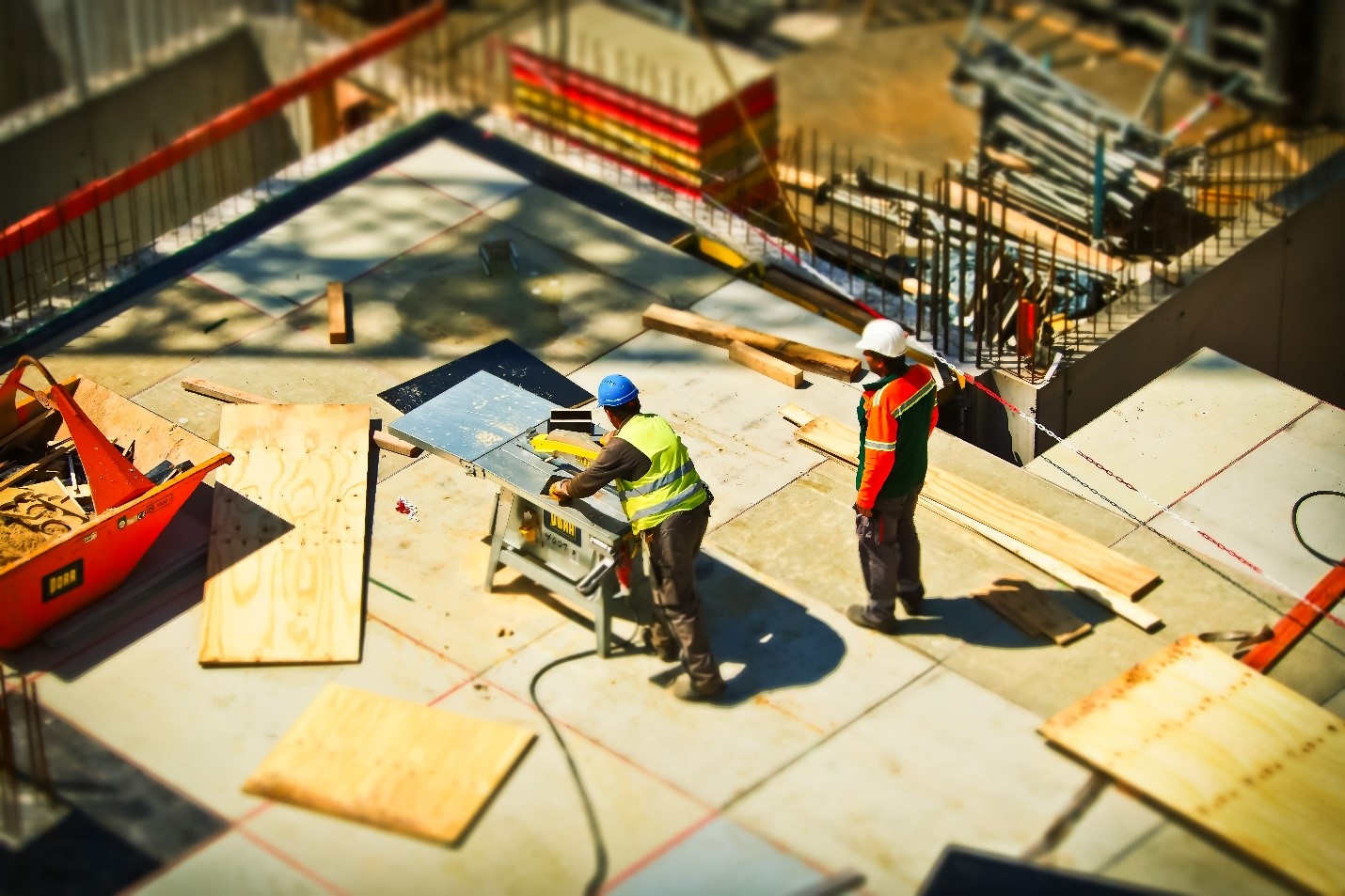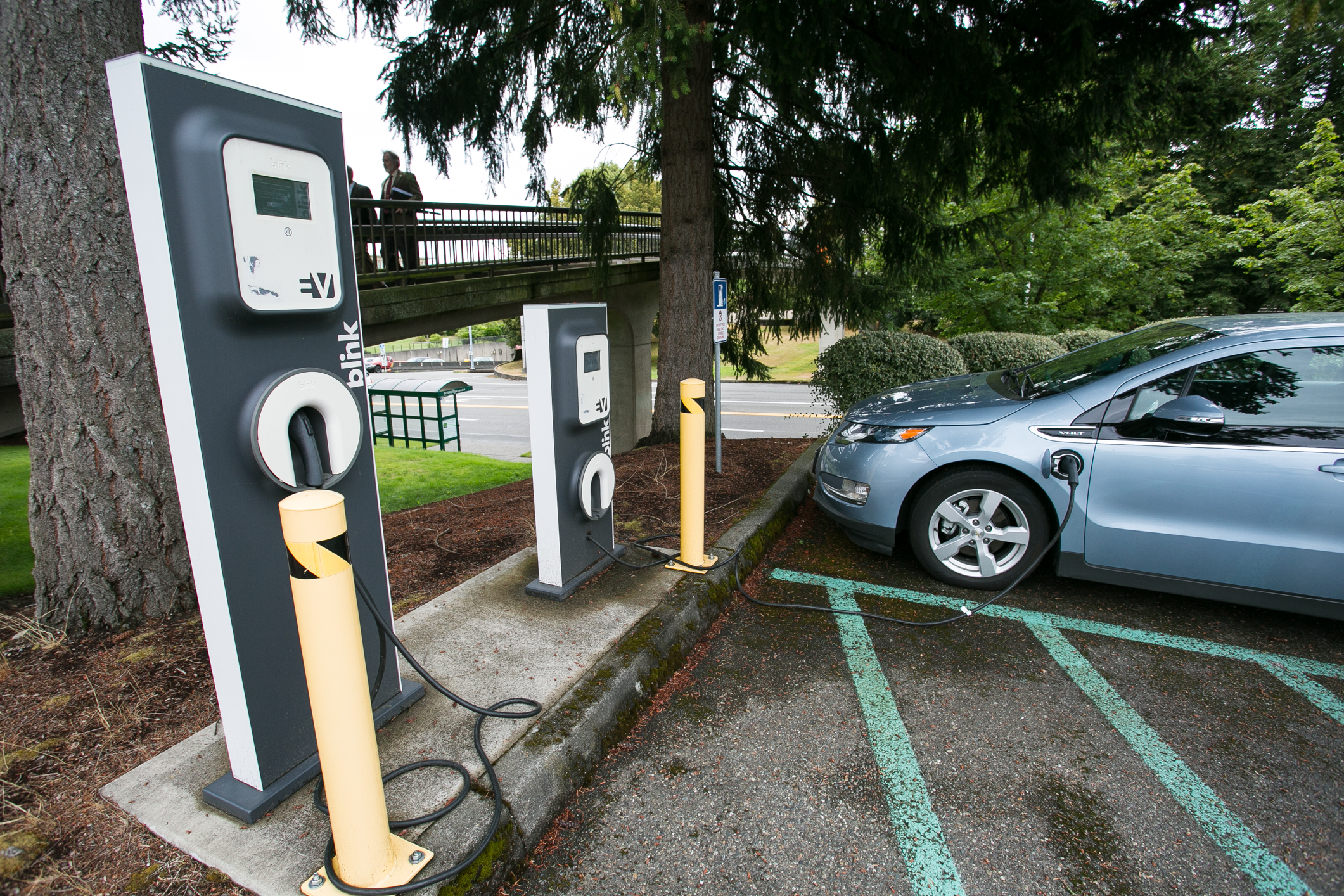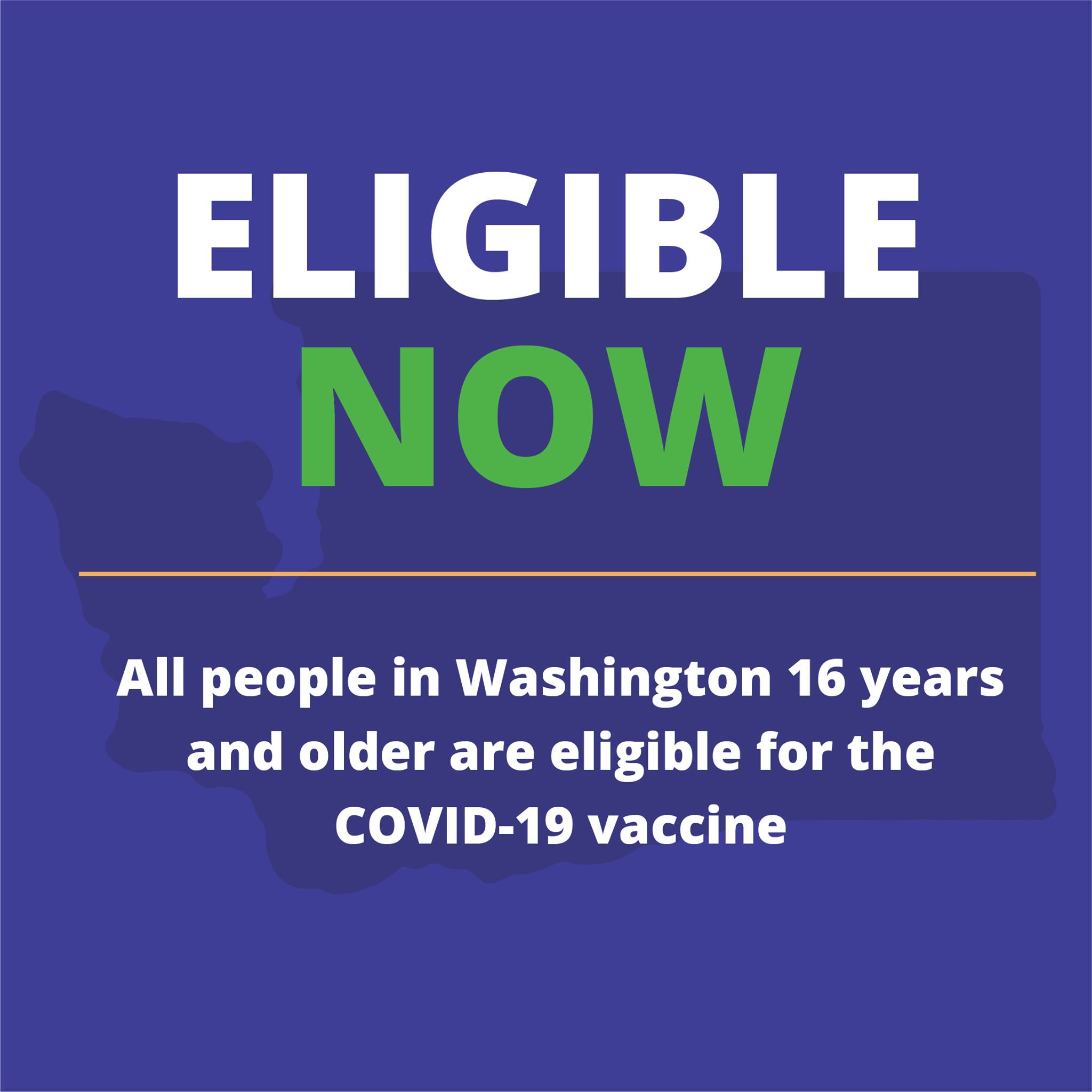Dear Friends and Neighbors,
After 105 days of virtual collaboration with constituents and colleagues, the legislature adjourned safely and on time with significant successes for our communities. We passed policies and budgets that respond to the COVID-19 pandemic, help ensure an equitable economic recovery, advance racial justice, protect our climate and environment, invest in health care and education, and so much more. While virtual constituent meetings, committee meetings and floor sessions are not the ideal way to conduct our important work, I am extremely proud of all we were able to accomplish.
Over the next several weeks, I’ll send you periodic updates on some of the important issues we addressed.
Thanks for taking the time to read this update,

COVID-19 vaccination updates
Good news! Lumen Field Event Center, Rainier Beach, and West Seattle Vaccination sites are now accepting walk-in patients without appointments!
Additionally, thousands of appointments remain available at City of Seattle locations. Remember, all people age 16 and older are now eligible to get a COVID vaccination at cost to you. Click here to learn more about walk-in appointments, scheduling an appointment, and what to expect when you get your shot at a City of Seattle vaccination site—information is available in multiple languages.
Click here to search for additional vaccine appointments by zip code.
Individuals in King County who are unable to leave their homes due to a disability or medical condition may qualify for in-home vaccination Through partnerships with local fire departments, pharmacies, and medical providers, Public Health Seattle/King County mobile teams are ready to deliver vaccinations to residents where they need it most. Click here for more information.
If you are one of the nearly 70% of Seattle residents who has begun their vaccination process—thank you! Right now, getting vaccinated is the most important way to help our community recover from the public health and economic hardships this pandemic has caused.
If you’ve already received your vaccine, please consider helping a family member, friend, coworker or neighbor get vaccinated. Just like with earlier efforts to stop the spread, it’s up to each of us to do our part—together—and get vaccinated as soon as possible.
House Democrats invest in all residents by passing the “Washington Recovery Budget”

This session, House Democrats followed through on Washington’s Plan for Community and Economic Recovery – the centerpiece of which was the two-year $59 billion operating budget. The “Washington Recovery Budget” will ensure that the people of Washington, no matter the color of our skin, our background, or how much we earn, will have the support we need to recover together.
The challenges we face are real: A housing crisis, waiting lists and barriers to support, vulnerable populations being left out in the cold, socially-isolated seniors, parents living in poverty and struggling to provide food, shelter, or a warm bed for their children.
This budget says that if we are going to recover, we must recover together and not leave anyone behind. We must trust our neighbors and give them resources to meet their needs. Because when they do, they invest in local businesses, boosting families, improving their community. When we invest in our neighbors, we are investing in ourselves.
I will be watching closely as these historic investments are funneled to our communities and I’m here to support you in accessing these services provided by the Washington Recovery Budget. I recognize that the work does not stop here. We have a long road to recovery, and I hope you will join me in walking it together.
Stay tuned for updates on budget investments for economic recovery, health care, education, natural resources and more! I’ll be sending more details in upcoming e-newsletters.
Super-sized funding for COVID-19 vaccines, testing included as Democrats pass Washington Recovery Budget

The key to defeating COVID-19 is protecting ourselves. With cases fluctuating dramatically, we must be more vigilant than ever and do our best to keep ourselves and each other safe. One way to do that is through vaccinations, which I am proud to say were funded in our budget with over $1 billion in federal funds boosting our public health departments and other vaccine distributors. But we can also be sure we’re safe through COVID-19 testing and contact tracing, which also received big increases in our budget this year.
Utilizing the state budget and the Biden/Harris American Rescue Plan Act, we can dramatically expand our public health response to COVID-19 and set us up for long-term public health success.
As Vice Chair of the Appropriations Committee, I was proud to help lead in the creation of our two-year operating budget that provides:
- $1.2 billion for COVID vaccines, contact tracing and testing
- $149 million for local public health districts
- $124 million for primary care provider rate increases
- $76 million for dental rate increases
- $35 million for health care for uninsured individuals regardless of immigration status
- $19 million for Indian health improvement reinvestment
My hope is that when the pandemic has passed, we have the necessary resources and infrastructure to provide better health care and outcomes for everyone in our community. With the Washington Recovery Budget, I think we are on the right path to get there.
New construction budget makes historic investments in broadband and housing

The state’s new two-year construction budget breaks the record with $6.3 billion in investments in every corner of Washington state.
That includes a massive $411 million push for broadband access, a pressing need exposed by the COVID pandemic with so many people working from home while their kids were doing remote school.
The budget also invests in housing, education, and environmental projects.
Highlights of the 2021-23 capital budget
Affordable housing and emergency shelters
- $175 million for the Housing Trust Fund to build long-term affordable housing for the lowest-income Washingtonians
- $120 million for acquisition of property and buildings that can be rapidly converted to permanent or emergency housing for low-income people, including people who are homeless
- $42 million for utility and infrastructure costs related to affordable housing
- $10 million for preservation of existing affordable housing
Essential public infrastructure
- $411 million for broadband infrastructure
- $129 million in public works grants and loans
- $113 million for federal stimulus-funded infrastructure
- $40 million for Community Economic Revitalization Board projects
New transportation budget invests in equity and sustainability

The new $11.8 billion transportation budget will continue to fund major work, including $493 million for the SR-520 bridge replacement program, that was under threat last year because of financial pressures from the COVID-19 pandemic and a ballot initiative that caused Gov. Jay Inslee to put construction projects on hold to save money.
It includes new initiatives to create a more diverse transportation workforce along with funding for a more sustainable transportation system with electrification, charging stations, and hybrid ferries.
Highlights of the 2021-23 transportation budget
Federal funding
- $400 million for fish culverts
- $600 million to backfill revenue losses from COVID
Sustainable transportation
- $6.9 million for alternative fuel vehicle charging and refueling infrastructure program, with $1.75 million in additional funding for two charging station projects
- $5 million for green transportation capital grants to help transit agencies fund the projects needed to reduce carbon emissions and switch to electric vehicles or other zero-emission options
Equity in contracting, apprenticeships and access to transportation
- $2 million is provided to the Office of Minority and Women’s Business Enterprises (OMWBE) for increasing the number of certified women and minority-owned contractors outside of the Puget Sound area in the transportation sector to work on state projects
- $4 million is provided to the Department of Transportation’s (WSDOT) Office of Equal Opportunity, for efforts to increase diversity in the transportation construction workforce through the pre-apprenticeship support services (PASS) program and provide technical assistance for MWBE contractors
- $215,000 – Joint Transportation Commission study on the impacts of current and historical city transportation investments on communities of color, low-income households, vulnerable populations, and displaced communities. The assessment will include specific approaches to addressing existing inequities within cities, as well as recommendations to develop best practices to improve, diversify, and expand city transportation investments
Ferries
- $688K for New Employee Training — WSDOT must increase outreach to and recruitment of populations underrepresented in maritime careers and continue working to expand apprenticeship and internship programs.
- $24.75 million to convert up to two Jumbo Mark II vessels to EV propulsion
- $505 million in capital funding for the state’s ferry system, including $100.2 million for Colman Dock preservation, $110.4 million in preservation work for the ferry fleet, the funding for electrification mentioned earlier, and $68.5 million to preserve terminal buildings around the Puget Sound

